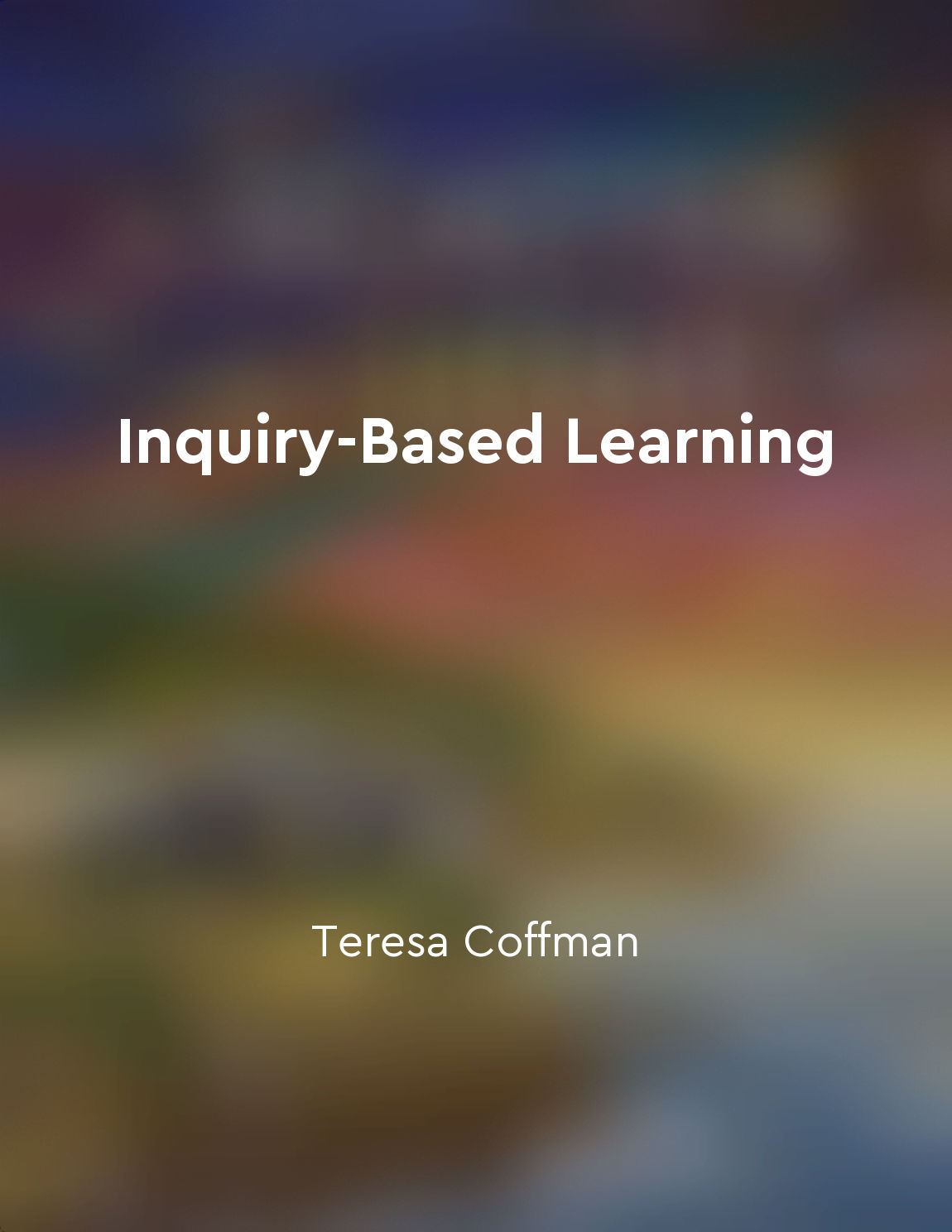Cultivate curiosity and inquiry from "summary" of Teaching Kids to Think by Darlene Sweetland,Ron Stolberg
The foundation of teaching kids to think lies in cultivating curiosity and inquiry. This concept is key to fostering a love of learning and developing critical thinking skills in children. Curiosity is a powerful motivator that drives exploration and discovery. By encouraging children to ask questions and seek out answers, we are nurturing their natural inquisitiveness and promoting a deeper understanding of the world around them. When we cultivate curiosity and inquiry in children, we are teaching them to think for themselves and to approach problems with an open mind. This helps them develop the ability to analyze information, draw connections, and come up with creative solutions. By encouraging children to explore different perspectives and consider alternative viewpoints, we are helping them become more flexible and adaptable thinkers. Curiosity and inquiry also help children develop a growth mindset, which is the belief that intelligence and abilities can be developed through effort and perseverance. When children are curious, they are more willing to take risks, make mistakes, and learn from their experiences. This fosters a sense of resilience and a willingness to embrace challenges as opportunities for growth. In order to cultivate curiosity and inquiry in children, it is important to create a supportive learning environment that encourages exploration and experimentation. This can be done by providing opportunities for hands-on learning, promoting collaboration and discussion, and offering a variety of resources and materials for children to explore. As educators and parents, we play a crucial role in nurturing curiosity and inquiry in children. By modeling curiosity ourselves and showing enthusiasm for learning, we can inspire children to approach the world with wonder and excitement. By encouraging children to ask questions, explore new ideas, and seek out answers, we are helping them develop the essential thinking skills they need to succeed in school and beyond.Similar Posts
Setting specific goals increases accountability
Setting specific goals increases accountability is a concept that can significantly enhance our ability to make positive change...
Trust your intuition
When we talk about intuition, we are referring to that inner voice that guides us, that gut feeling that tells us what is right...
Life is a singleplayer game
Life is a singleplayer game. You're born alone. You're going to die alone. It's all on you. There are many people around you, b...
Take responsibility for your own happiness
Taking responsibility for your own happiness is a concept that requires a shift in mindset. It involves recognizing that your h...
View mistakes as opportunities for growth
When we view mistakes as opportunities for growth, we open ourselves up to the possibility of learning and improving. Instead o...

The edge of time is near
In the midst of our busy lives, it is easy to lose sight of the fact that time is not infinite. Each passing moment brings us c...

Inquirybased learning empowers students to explore
The essence of inquiry-based learning lies in its ability to foster a sense of exploration and discovery in students. By engagi...

Reflection enhances learning outcomes
Reflection is a powerful tool that can significantly enhance the outcomes of learning experiences. When students take the time ...
Develop a growth mindset to overcome learning obstacles
To effectively tackle challenges in learning, it is essential to cultivate a growth mindset. This mindset involves embracing th...
Keep an open mind to new possibilities
The key to effective thinking lies in the ability to keep an open mind to new possibilities. This concept is crucial in navigat...

